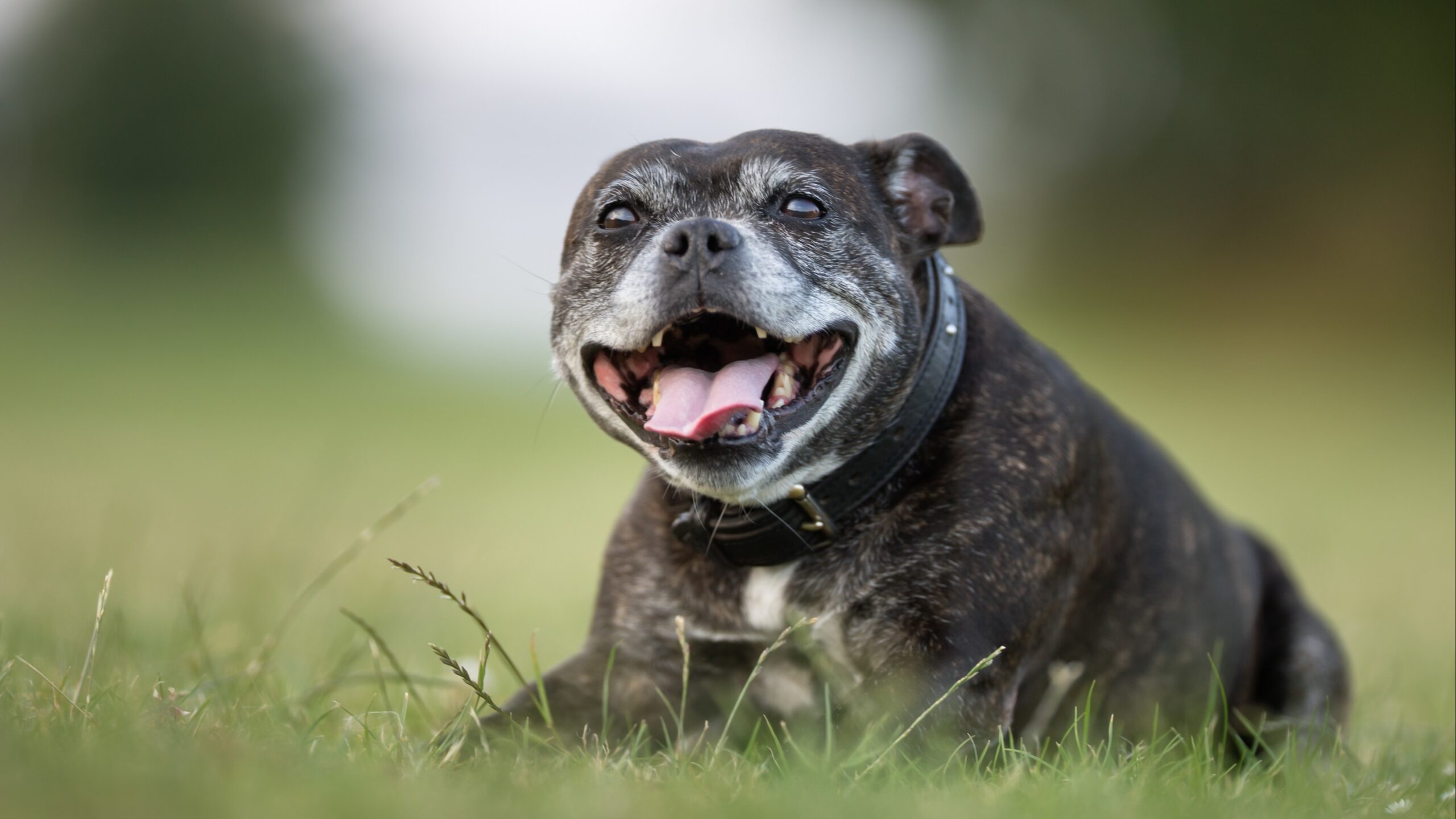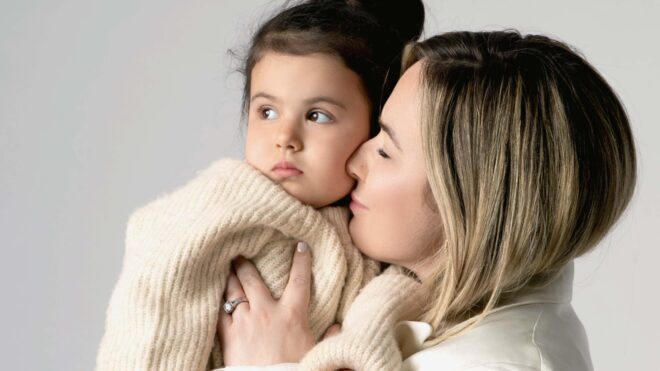
Canine cognitive dysfunction (CCD), or canine dysfunctional behavior (CDB), is a behavioral condition that mostly affects senior dogs. According to the NCBI, traits of the syndrome include disorientation, sleep disturbances, unpredictable interactions with owners and other animals, and house soiling despite previous training.
According to The Veterinary Nurse, it's estimated that over 28% of dogs ages 11 to 12 and 68% ages 15 to 16 suffer from CCD/CBD.
There is a lot of research and journalism out there that compares canine cognitive dysfunction to autism in humans>; however, I don’t know about you, but one look at the description makes me think more of doggy dementia than puppy autism ...
So why is it compared to autism?

With many health conditions, the answer pretty much comes down to two things: human bias and overlapping symptoms. There are tons of autistic traits that mirror the symptoms of CCD/CDB, such as sleep disturbances, obsessive-compulsive behaviors (obsessive circling, tail chewing, teeth grinding), and, according to Pet Check Urgent Care, lining up their toys the way autistic children do.

Dogs diagnosed with the syndrome also show higher signs of anxiety in specific situations. With that being said, is this just a case of overlapping symptoms? There are overlapping traits of most mental, developmental, and even physical conditions for both dogs and humans. Autism and dementia, autism and OCD, OCD and ADHD, anxiety and depression — there are overlaps everywhere. So much so that misdiagnosis happens in humans all the time. ADHD and autism is a big one, as well as CPTSD (complex post-traumatic stress disorder) and autism, so maybe the comparison of CCD/CDB and autism shares a similar fate.
Treatments

Autism may not be an illness (it’s a neurotype); however, there are still therapies and treatments that make life easier for autistic folk, from sensory tools to deal with sensory overload/underload to counseling to deal with the stigma attached to the condition and any anxieties attached. For dogs with CDB, we may not be able to sit them down with talk therapy, but there are treatments available to calm their anxiety. Similarly to any human condition, treatments for CCD/CDB include therapy, medication, and patience.

Cognitive enrichment does wonders for a dog with CCD/CDB; this includes puzzles, toys, and activities that help stimulate a dog’s brain rather than just the body. Controlled social interactions (e.g., not too often but not too sparingly, keeping an eye on them) also help reduce anxiety — and also help your dog, essentially, practice how to be social. Making changes to your dog’s environment will also help significantly, because having a special calm and quiet space will help your pet relax and avoid triggering sleep disturbances and aggression. Going back to brain function, supplements and medications are often advised by vets to help treat CCD/CDB.

Adding fatty acids and antioxidants to their daily meals has been shown to increase healthy brain function in dogs by helping maintain structural integrity. Medication may also be an option, though many dog owners may prefer to go the diet and environmental routes, depending on the severity of the condition. In terms of the autism comparison, the biggest similarity here is the environmental factor, as a good living space for an autistic person will highly decrease any related stress and anxiety. However, there is no magic medication for autism, nor should there be. Autism is not an illness, and the search for a "cure" has long been shunned by the autistic community. That being said, many autistic folk are on SSRIs (selective serotonin reuptake inhibitors) to combat anxiety and depression, but it has no effect on autism as a whole.
Is it actually comparable to autism?

No one health-related condition is identical to another, but there are similarities between autism and CCD/CDB. Does that mean they are the same condition, interspecies? Probably not. The biggest factor that makes me doubt CCD/CDB is the dog equivalent of autism is that it doesn’t have a spectrum for diagnosis. The autism spectrum is a wide and diverse place where not one autistic person or their experience is the same. For example, eye contact is a big deal in the autism world. For some, making eye contact is deeply stressful, or just something they don’t do; for others, constant eye contact without breaks is what they feel most comfortable with.

So with CCD/CDB, these diagnosis criteria are a lot less open, which to me negates the point of it being compared to autism. The fact that it affects older dogs is also something that makes it more relatable to dementia than autism. Personally, I also don’t appreciate autism being compared to a syndrome with the word dysfunction in the title. If society were a little more functional itself, then autistic folk wouldn’t be handed so much stigma.







